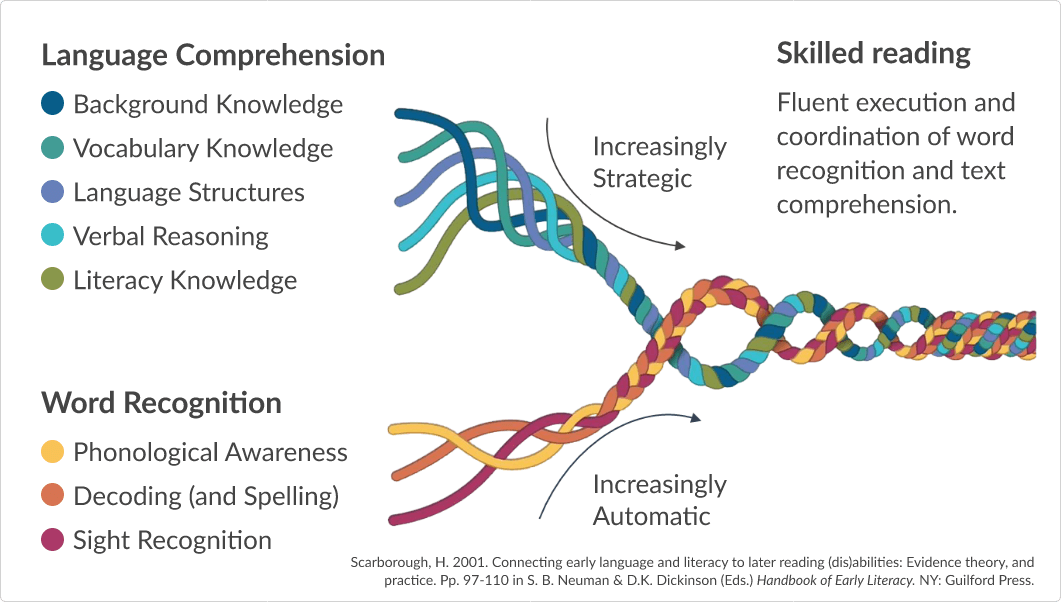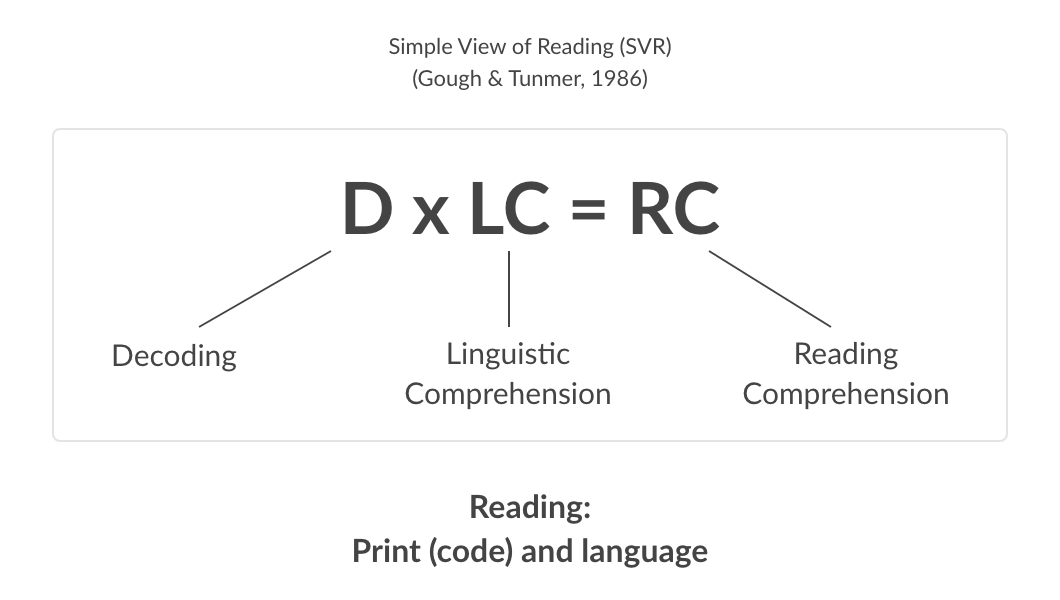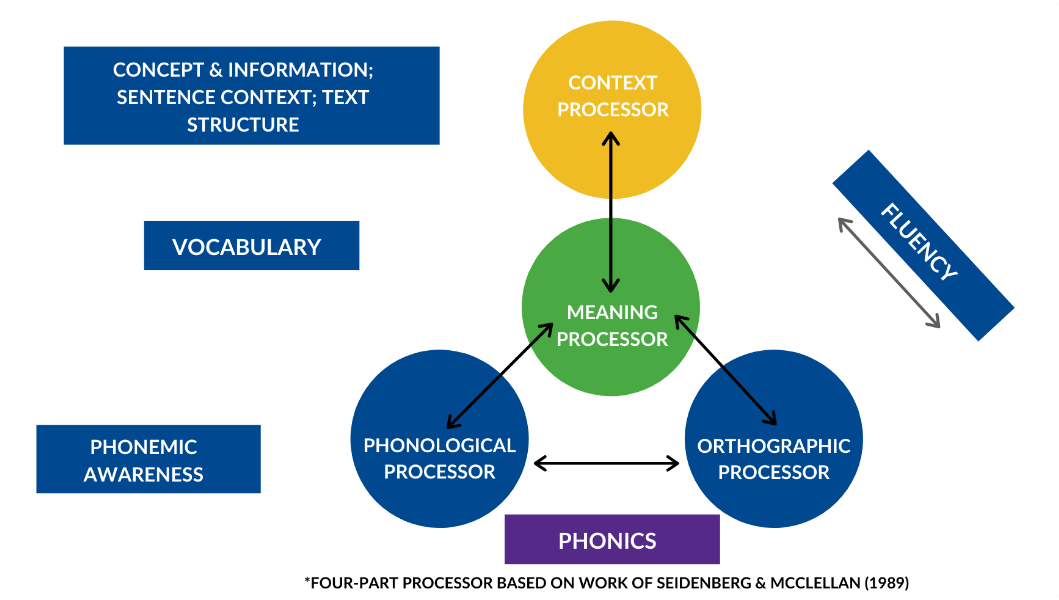What does deep reader mean?
At Cox Campus, we endorse Dr. Gholdy Muhammad and Dr. Maryanne Wolf's definitions of deep literacy or deep reading. In Wolf's book Reader, Come Home, she describes deep reading as being beyond societal's widely accepted standard of "proficiency" to a much greater goal, one beyond decoding, reading fluency and good literal comprehension. The goal is a deeper, more analytic brain - a brain that thinks critically and takes the perspective of others while feeling empathy for their plight. A deep reading brain demonstrates personal reflection as it imagines a better choice, a better idea or a better world. Muhammad extends this philosophy, in Cultivating Genius, describing reading and writing as "transformational acts to improve self and society" and essential for children being able to "acknowledge, name, and interrogate injustices in an effort to transform the world."
Scarborough's Rope
By maximizing every interaction with all students, you'll develop each strand of Scarborough's Rope in your own classroom and cultivate a language-rich environment for teaching and learning.

The Science Behind Cox Campus
Cox Campus is dedicated to achieving universal literacy through the Science of Reading (SoR): best practices for teaching reading from prevention to diagnosis, application and intervention backed by scientific evidence that spans several disciplines including cognitive science, education, speech-language pathology, special education, psychology and more.
For more than 20 years, scientists and researchers have known what our children need in order to become readers. Unfortunately, much of what they've learned has only made its way into the mainstream recently. On Cox Campus, you'll grow one step closer to building your students' brains - no matter how young - by implementing the science. We acknowledge that the persistent illiteracy epidemic facing our nation is complex, multifaceted and rooted in centuries of systemic injustice. Our responsibility is to ensure that financial means are never a barrier for educators in search of better for the children they serve. With the Cox Campus, every educator has open access to knowledge and evidence-based instructional practices rooted in the Science of Reading.
Along with Scarborough's Rope, The Simple View of Reading and the Four-Part Processor are scientific, theoretical frameworks that underpin the Science of Reading, and thus, the Cox Campus. These frameworks show how various components of language, both oral and written, work together to yield skilled readers and provide a roadmap for assessment, instruction, differentiation, and intervention.


Start Applying the Science of Reading Today with Cox Campus
When you become a Cox Campus member, you:
- Build your knowledge and skills based on instructional practices you can implement immediately through professional learning
- Shift from balanced literacy to structured literacy
- Have access to a robust Resource Center with science-aligned assessments and lessons focused on the five components of reading: vocabulary, phonological awareness, phonics, fluency and comprehension
- Learn from the national reading experts on our Advisory Panel who often consult on our coursework
- Deepen your practice with IACET accredited CEUs in our K-3
- Assess all students at the beginning of the year and throughout to ensure success